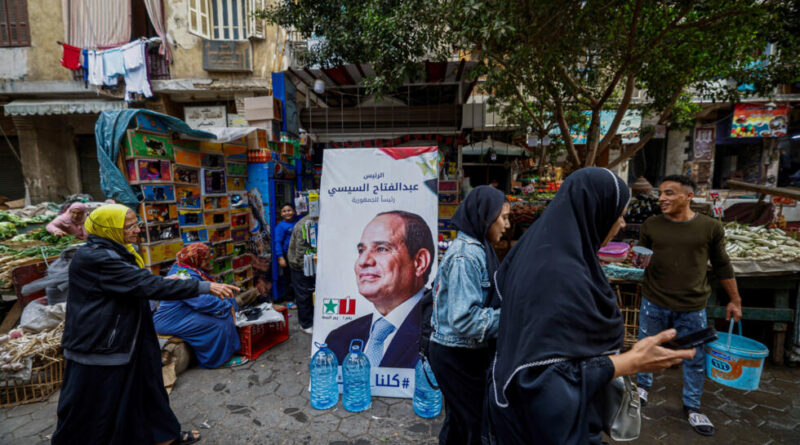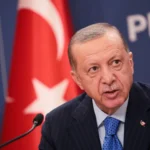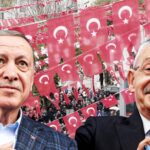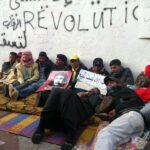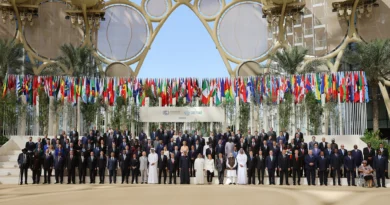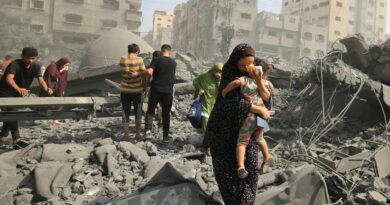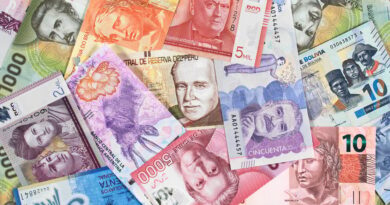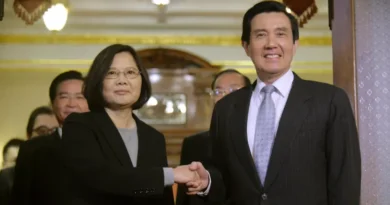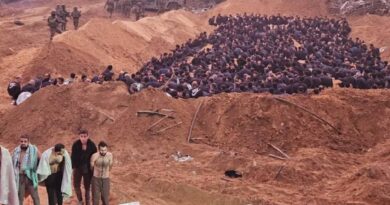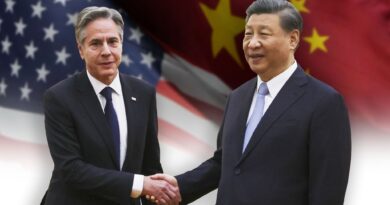While Gaza burns, Al-Sisi seeks to relegitimize himself at the polls
RICARD GONZALEZ
Tunisia
While the entire world looks in horror at Gaza, Egypt, the only country adjacent to the martyred Palestinian strip, apart from Israel, is distracted by rather irrelevant elections. Starting Sunday, and for three consecutive days, Egyptians are summoned to the polls to endorse the dictator who rules the country with an iron fist: Marshal Abdelfattah Al-Sisi. The elections take place a decade after the military coup d'état orchestrated by Al-Sisi that put an end to the brief and turbulent transition born from Tahrir Square.
As happened in previous elections, any hint of pluralism is a farce in a military dictatorship that keeps tens of thousands of political prisoners behind bars, including opposition leaders, activists, and even influencers or artists who do not fit into the narrow moral vision. of the military.
This time, Al-Sisi, 69, will have three straw adversaries: Abdel Senad Yamama, leader of the historic Wafd party, converted into a platform for business interests; Hazem Omar, from an obscure party close to former dictator Mubarak; and Farid Zahran, president of the Egyptian Social Democratic Party. In their rallies and interviews, none of the three have barely criticized the president or his policies, always careful not to cross any of the red lines established by the regime. Without real competition, it is very likely that Al-Sisi will again obtain close to 90% of the votes.
The only candidate candidate willing to actually act as an opponent was former deputy Ahmed al-Tantawi, a member of a progressive opposition coalition that brings together a dozen parties. However, Al-Tantawi was unable to gather the 25.000 signatures required by law to run in the elections, given that several of his collaborators were arrested, and others suffered police harassment.
Faced with all these abuses, once again, the majority of the legal opposition has chosen to boycott the elections. The Muslim Brotherhood, the powerful Islamist movement that won every election during the brief period of democratic transition, will do the same. But in his case, there was no choice, since it is outlawed as it is considered a “terrorist organization” by the regime.
“We call on the Egyptian people to unmask this farce and not participate in this legitimization of an unjust regime, which has corrupted the political and social life of the country, and wasted the country's resources,” Mohamed Emad, a leader of the Brotherhood exiled in Turkey. Headless and demoralized by harsh repression, this group tries to survive underground and it is impossible to measure their level of support.
For many analysts, the most interesting data of the electoral process will be that of participation, which has shown a progressive downward trend. In 2019, only 41% of Egyptians went to the polls, despite the State mobilizing all its resources to promote voting, including strong pressure on officials and even the threat of fines to abstainers.
Timothy Kaldas, deputy director of the TIMEP Think Tank, qualifies this interpretation: “Al-Sisi's popularity is very low. What will measure participation is rather how much money the regime has wanted to invest in mobilizing a part of the population, because many voters will vote in exchange for money, or pressure from their boss.”
This loss of popular support is directly linked to the country's difficult economic situation. Despite having received 114.000 billion dollars from its allies in the Persian Gulf in ten years, and having signed three loans with the IMF since 2016, a year ago Cairo had to request a fourth loan of 3.000 billion dollars from the Fund to avoid bankruptcy. In just over a year, the Egyptian pound lost half its value against the dollar, plunging millions of people into poverty.
Now, the Fund demands a new devaluation of the pound and more cuts in public spending, and that could have been the reason why Al-Sisi brought forward elections scheduled for the middle of next year and with which he seeks to relegitimize himself. “The regime has wasted billions on projects that have enriched the generals, but have not generated a stronger productive fabric. In fact, the private sector has been shrinking for years,” says Kaldas.
Precisely, another of the IMF's conditions is the privatization of a part of the Army's companies, which has placed Al-Sisi in a difficult dilemma: should he damage his main pillar of support or risk alienating the Fund, which Have you saved yourself from bankruptcy several times?
The degradation of the economic and social situation explains the feeling of insecurity conveyed by the regime, which leaves no room for criticism. Even some exclusively labor-related protests, such as those of a group of primary school teachers in October, or those in support of Palestine because of the Gaza war, which had not been expressly authorized, have been repressed extremely harshly.
The outbreak of war in neighboring Gaza, which occurred after elections had already been called, did not figure in Al-Sisi's plans, but it is not at all clear what its effect on the regime will be. The Egyptian population applauded its president for not allowing the expulsion of hundreds of thousands of Gazans to the Sinai, which would have consummated the ethnic cleansing in the area desired by the Israeli far-right. Now, many resent that his government is not doing more to stop the war, or at least get more humanitarian aid to a desperate Palestinian population. For now, Al-Sisi is preparing to overcome the process of new elections to forge a presidency for life.
 Ricardo Gonzalez He is a journalist. She works mainly in the Maghreb and the Middle East.
Ricardo Gonzalez He is a journalist. She works mainly in the Maghreb and the Middle East.

